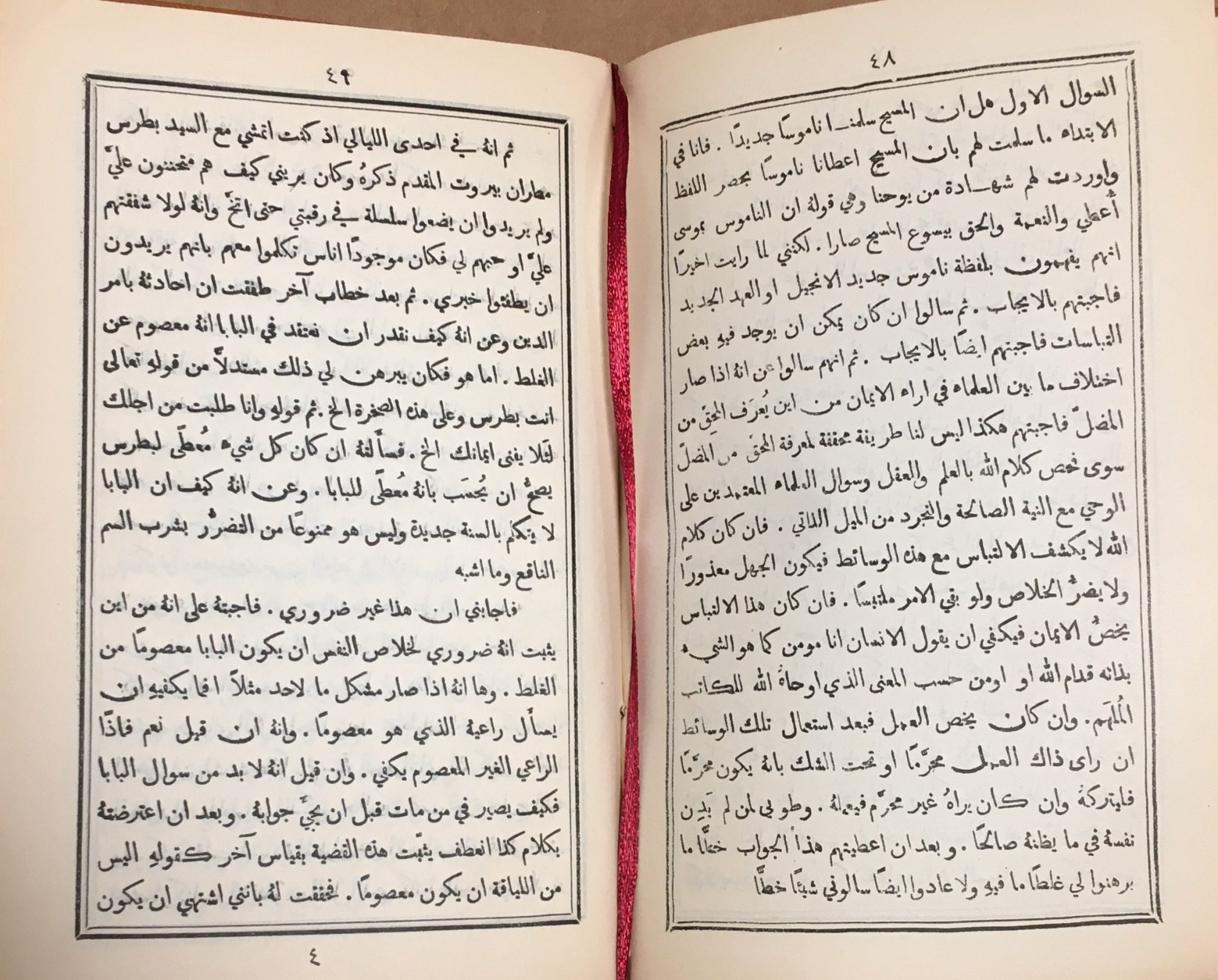Qissat As’ad al-Shidyaq. Bakurat Sourya. قصة أسعد الشدياق
AL-BUSTANI, BUTURUS (1819-1883).
Synopsis
A second edition of this extremely rare publication.
Asaad Al-Shidyaq (1798-1830) came under the influence of the American Congregationalist missionaries in Beirut where he was employed by them as a teacher and translator; he had embraced Protestantism in defiance of the Maronite Patriarch. When Al-Shidyaq was imprisoned and ill-treated by the Patriarch, his brother, the famous scholar Faris, acted on his own initiative by going to the missionaries and eventually taking refuge with them. To avoid his suffering a similar fate to that of his brother, the missionaries decided to send him away from Lebanon, and he embarked from Tyre to Alexandria in December 1826.
In 1830 the Maronite Patriarch starved As’ad al-Shidayq to death after imprisoning him in a convent in the Lebanese mountains. A few years after his death the renowned linguist and literary figure wrote the story of As’ad Al-Shidyaq and published it for the first time at the American Missionary printing house in Malta. About thirty years after the death of As’ad al-Shidyaq, the text was reprinted in 1860 in Beirut. Bustani offers the form of the story Khabriyat, in order to frame As’ad al-Shidyaq’s life. In Khabriyat As’ad al-Shidyaq, life is a narrative from birth to death. Bustani’s conclusion in narrating the life story of al- Shidyaq was: “Remember that we cannot share with Christ His greatness if we do not also
share His pain. So be joyful and happy whenever you are tested, and do not be sad, because your faith is strong”.
COPAC lists one copy only at the University of Glasgow.
Butrus al-Bustani was a writer and scholar from the present-day Lebanon. He was a major figure in the Nahda, which began in Egypt in the late 19th century and spread to the Middle East. He is considered to be the first Syrian nationalist, due to his publication of Nafir Suria which began following the 1860 Mount Lebanon civil war. In 1870, he founded Al-Jinan, the first important example of the kind of literary and scientific
periodicals which began to appear in the 1870s in Arabic alongside the independent political newspapers.








